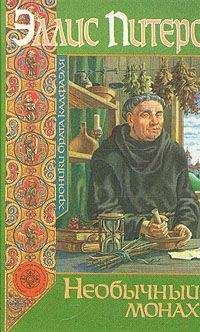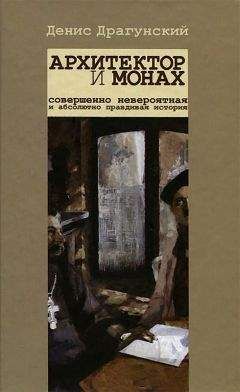Энтони Хоуп - Английский язык с Энтони Хоупом. Узник Зенды / Anthony Hope. The Prisoner Of Zenda
“Nobody knows (никто не знает). By the way, Bert, I met a great man at her house the other night (кстати, Берт, как-то вечером я встретил в ее доме очень интересного человека; great – большой, громадный; значительный, выдающийся; the other day – на днях, недавно; other – другой; night – ночь; вечер) – at least, about a month ago (по крайней мере, примерно с месяц назад). Did you ever meet him – the Duke of Strelsau (ты когда-нибудь встречался с ним – с герцогом Стрелсо)?”
“Yes, I did,” growled Bertram (да, встречался, – буркнул Бертрам).
“An extremely accomplished man, I thought him (в высшей степени воспитанный человек, как мне показалось; extremely – крайне, чрезвычайно; accomplished – совершенный, завершенный; воспитанный, культурный; to think – думать; понимать, представлять себе).”
It was not hard to see that George’s references to the duke (было нетрудно заметить, что упоминание Джорджа о герцоге; reference – ссылка /на кого-л., что-л./; упоминание) were intended to aggravate poor Bertram’s sufferings (имело намерение усугубить страдания бедняги Бертрама; to intend – намереваться), so that I drew the inference (так что я сделал вывод; to draw – тащить волочить; выводить /заключение/) that the duke had distinguished Madame de Mauban by his attentions (что герцог отметил госпожу де Мобан своим вниманием; to distinguish – отличать, различать; отмечать, выделять). She was a widow, rich, handsome (она была вдовой – богатой, красивой), and, according to repute, ambitious (и, согласно общему мнению, честолюбивой). It was quite possible that she, as George put it (было вполне вероятно, что она, как выразился Джордж; to put – класть; излагать, формулировать), was flying as high as a personage (была столь же высокого полета, как и /упомянутый/ герцог; personage – выдающаяся личность; особа, лицо; персонаж) who was everything he could be (который был всем тем, кем мог быть), short of enjoying strictly royal rank (разве только не обладал королевским званием; short of – за исключением, кроме; to enjoy – получать удовольствие; пользоваться, обладать; strictly – строго, внимательно; точно, определенно): for the duke was the son of the late King of Ruritania (поскольку герцог являлся сыном умершего короля Руритании; late – поздний; недавний; умерший) by a second and morganatic marriage (от второго и морганатического брака), and half-brother to the new King (и сводным братом новому королю; half-brother – брат по одному из родителей).
George jingled his money, smiled cruelly at poor Bertram, and answered pleasantly:
“Nobody knows. By the way, Bert, I met a great man at her house the other night – at least, about a month ago. Did you ever meet him – the Duke of Strelsau?”
“Yes, I did,” growled Bertram.
“An extremely accomplished man, I thought him.”
It was not hard to see that George’s references to the duke were intended to aggravate poor Bertram’s sufferings, so that I drew the inference that the duke had distinguished Madame de Mauban by his attentions. She was a widow, rich, handsome, and, according to repute, ambitious. It was quite possible that she, as George put it, was flying as high as a personage who was everything he could be, short of enjoying strictly royal rank: for the duke was the son of the late King of Ruritania by a second and morganatic marriage, and half-brother to the new King.
He had been his father’s favourite (он был отцовским любимцем), and it had occasioned some unfavourable comment (и поводом для нежелательных слухов послужило /то/; to occasion – вызывать, служить причиной; unfavourable – неблагоприятный; неодобрительный, неблагожелательный; favour – благосклонность, одобрение) when he had been created a duke (что его сделали герцогом; to create – создавать, творить; присваивать титул), with a title derived from no less a city than the capital itself (с получением титула по имени ни больше, ни меньше, чем самой столицы; title – заглавие, название; титул; no less than – не менее чем; ни больше, ни меньше чем). His mother had been of good, but not exalted, birth (его мать была из хорошей, но незнатной семьи; exalted – возвышенный; благородный; высокий /о положении, сане/; birth – рождение; происхождение).
“He’s not in Paris now, is he?” I asked (сейчас его нет в Париже, не так ли? – спросил я).
“Oh no! He’s gone back to be present at the King’s coronation (о, нет! он вернулся /домой/, чтобы присутствовать на коронации /нового/ короля); a ceremony which, I should say, he’ll not enjoy much (церемонии, которая, я должен заметить: «сказать», не сильно его порадует). But, Bert, old man, don’t despair (но Берт, старик, не отчаивайся)! He won’t marry the fair Antoinette (он не женится на прекрасной Антуанетте; fair – честный, справедливый; красивый, прекрасный) – at least, not unless another plan comes to nothing (по крайней мере, пока другие /его/ планы не пойдут прахом; to come to nothing – кончиться ничем, сойти на нет). Still perhaps she (хотя, возможно, она; still – до сих пор; все же, тем не менее, однако) – ” He paused and added, with a laugh (он сделал паузу и добавил со смехом): “Royal attentions are hard to resist (против королевских ухаживаний трудно устоять; attention – внимание; attentions – ухаживания; to resist – сопротивляться, противиться; устоять /против чего-л./) – you know that, don’t you, Rudolf (ты это знаешь, верно, Рудольф)?”
“Confound you!” said I (иди ты к черту, – сказал я; to confound – смущать, сбивать с толку; разрушать); and rising, I left the hapless Bertram in George’s hands (и поднявшись, я оставил несчастного Бертрама в руках Джорджа) and went home to bed (и отправился домой спать; to go to bed – идти спать; bed – кровать, постель).
He had been his father’s favourite, and it had occasioned some unfavourable comment when he had been created a duke, with a title derived from no less a city than the capital itself. His mother had been of good, but not exalted, birth.
“He’s not in Paris now, is he?” I asked.
“Oh no! He’s gone back to be present at the King’s coronation; a ceremony which, I should say, he’ll not enjoy much. But, Bert, old man, don’t despair! He won’t marry the fair Antoinette – at least, not unless another plan comes to nothing. Still perhaps she – “ He paused and added, with a laugh: “Royal attentions are hard to resist – you know that, don’t you, Rudolf?”
“Confound you!” said I; and rising, I left the hapless Bertram in George’s hands and went home to bed.
The next day George Featherly went with me to the station (на следующий день Джордж Фэзерли поехал со мной на вокзал), where I took a ticket for Dresden (где я взял билет на Дрезден; to take).
“Going to see the pictures?” asked George, with a grin (едешь посмотреть картины? – спросил Джордж с ухмылкой).
George is an inveterate gossip (Джордж – неисправимый сплетник), and had I told him that I was off to Ruritania (и скажи я ему, что еду в Руританию; to be off – уходить, отправляться), the news would have been in London in three days (эту новость знали бы: «эта новость была бы» в Лондоне через три дня) and in Park Lane in a week (а на Парк-Лейн – через неделю). I was, therefore, about to return an evasive answer (поэтому я собирался ответить уклончиво; to be about – быть поблизости; намереваться; to return – возвращать/ся/; отвечать /тем же/), when he saved my conscience by leaving me suddenly (тогда как он уберег мою совесть, внезапно меня оставив) and darting across the platform (и бросившись вдоль платформы; dart – дротик, стрела; to dart – метать; помчаться стрелой, устремиться). Following him with my eyes (проследив за ним взглядом), I saw him lift his hat (я увидел, как он, приподняв шляпу) and accost a graceful, fashionably dressed woman (обратился к /какой-то/ симпатичной, модно одетой женщине; graceful – грациозный, изящный; красивый, привлекательный) who had just appeared from the booking-office (которая только что появилась из = отошла от билетной кассы). She was, perhaps, a year or two over thirty (ей было, пожалуй, тридцать один или тридцать два года), tall, dark, and of rather full figure (высокая, темноволосая, со слегка полноватой фигурой; dark – темный; темноволосый; rather – лучше, скорее; до некоторой степени). As George talked, I saw her glance at me (когда Джордж разговаривал /с ней/, я увидел, что она взглянула на меня), and my vanity was hurt by the thought (и мое самолюбие было задето мыслью /о том/; vanity – тщеславие; самолюбие; to hurt – причинять боль; /больно/ задевать, обижать) that, muffled in a fur coat and a neck-wrapper (что, закутанный в меховое пальто и шарф; to muffle – закутывать, кутать; neck – шея; to wrap – обертывать, завертывать; укутывать) (for it was a chilly April day (так как был прохладный апрельский день)) and wearing a soft travelling hat pulled down to my ears (и в мягкой походной шляпе, натянутой на /самые/ уши; to wear – быть одетым, носить; travelling – путешествие), I must be looking very far from my best (я, должно быть, выглядел далеко не лучшим образом; very – очень; best – самое лучшее; лучшая часть, состояние /чего-л./). A moment later, George rejoined me (минутой позже Джордж присоединился ко мне; moment – момент, миг, минута).
The next day George Featherly went with me to the station, where I took a ticket for Dresden.
“Going to see the pictures?” asked George, with a grin.
George is an inveterate gossip, and had I told him that I was off to Ruritania, the news would have been in London in three days and in Park Lane in a week. I was, therefore, about to return an evasive answer, when he saved my conscience by leaving me suddenly and darting across the platform. Following him with my eyes, I saw him lift his hat and accost a graceful, fashionably dressed woman who had just appeared from the booking-office. She was, perhaps, a year or two over thirty, tall, dark, and of rather full figure. As George talked, I saw her glance at me, and my vanity was hurt by the thought that, muffled in a fur coat and a neck-wrapper (for it was a chilly April day) and wearing a soft travelling hat pulled down to my ears, I must be looking very far from my best. A moment later, George rejoined me.
“You’ve got a charming travelling companion (в /этой/ поездке у тебя будет очаровательная спутница; to have got – иметь, обладать; travelling – путешествие),” he said. “That’s poor Bert Bertrand’s goddess, Antoinette de Mauban (это – предмет обожания бедняги Бертрама, Антуанетта де Мобан; goddess – богиня; обожаемая женщина), and, like you, she’s going to Dresden (и она, так же, как и ты, едет в Дрезден) – also, no doubt, to see the pictures (конечно же, тоже посмотреть картины; no doubt – без сомнения). It’s very queer, though (хотя, весьма странно), that she doesn’t at present desire the honour of your acquaintance (что в данный момент она не жаждет /удостоиться/ чести знакомства с тобой; to desire – желать, испытывать желание).”




